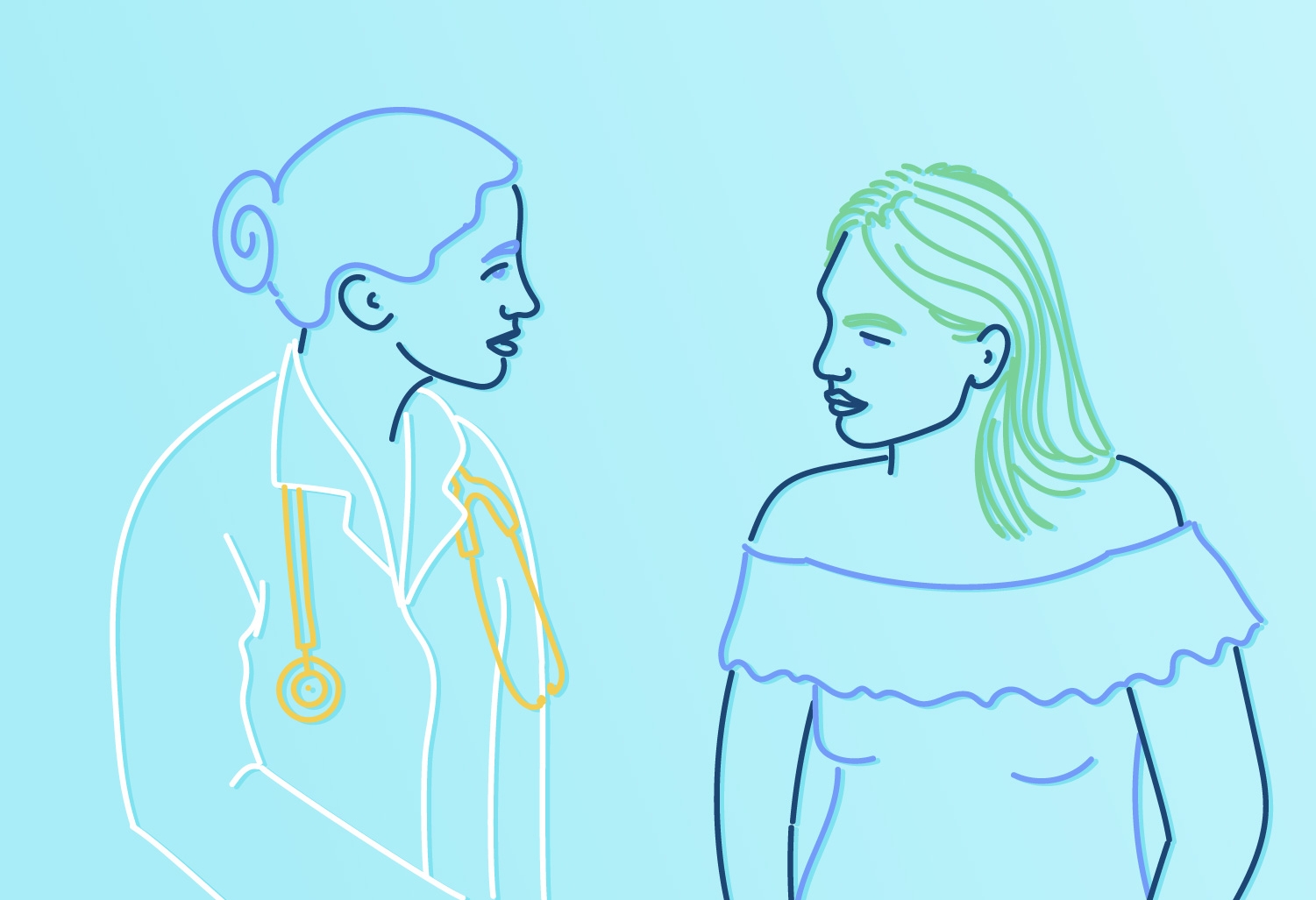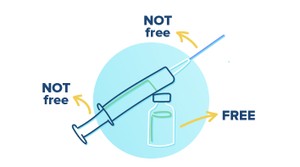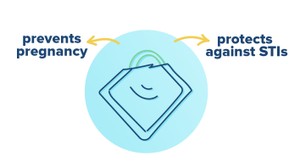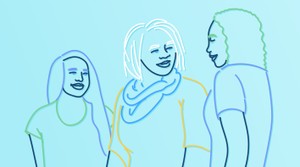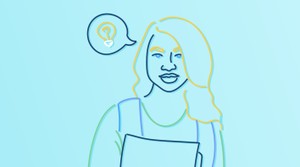In 2019, Côte d’Ivoire had a modern contraceptive prevalence rate of 18%, while the National Health Development Plan (PNDS 2016-2020) provides for a target of 36% by 2020 for both modern and traditional contraceptive methods. There are still 30.5% of women whose contraceptive needs are unmet.
Here, talking about sexuality is taboo, talking about abortion is even more so. Abortion is only allowed in cases of rape and to save the woman’s life. A National Performance Monitoring and Accountability 2020 (PMA2020) survey revealed that 43% of respondents aged 15 to 49 who had ever been pregnant reported having had an induced abortion, the majority of which was performed in unsafe conditions.
To talk about the challenges facing young people in the country, Find My Method invited Euphrasie Coulibaly – President of the Association for the Promotion of Sexual Health and the Empowerment of Young People (AP2SAJ), to share her thoughts with us.
—
Hello! I am Euphrasie Coulibaly. I have a fight that I will never give up. Since Mady * passed away, I have made this promise to myself. She was my friend. We used to talk about everything…well, almost everything. We were talking on the phone while she was attempting a decoction abortion. And it was only on the eve of her death that she told me she was not feeling well. Together, we had never addressed issues related to sexuality. However, she knew of my involvement in youth associations to fight HIV/AIDS, and sexual and reproductive health. Every day, I tell myself that if I had discussed sex with her, it could have made a difference. Maybe she wouldn’t have gotten pregnant!? And even if she did, maybe she wouldn’t have used decoctions for an abortion!?
I decided not to sit there waiting for the answers to these questions. I decided to take action. Whenever I get the chance, I will talk about sex to give the right information.
Free! Not really
Young people are often faced with a lack of contraceptive products in health centers. And when these products are available, they are not “free”. For instance, in school and university health centers, the concern arises at the level of inputs. That is, I can have the injectable which is available and free, but there are no syringes and/or alcohol to disinfect, etc.
To get the contraceptive, the young woman will have to pay between 500 Fcfa and 1500 Fcfa. Yet the state tells us that this service is free, but the reality is quite different. But this should not hold us back, we must continue and increase awareness of contraceptive use among young people.
Double protection
In recent years in Côte d’Ivoire, we have been talking about zero pregnancy at school*; hmmm…the mistake we have all made is that we have talked about contraceptive products but not the double protection. Young people are afraid of pregnancy, for example, but they are not told that every act of intercourse certainly involves pregnancy but also sexually-transmitted infections or HIV/AIDS. That’s why, I’m saying we need to rectify communication for adolescents and young people. It is necessary to emphasize the double protection and promote the use of condoms. For me, this is the best protection.
Habits resist
There are still providers who substitute for the father or mother of those looking for contraceptive products. They berate instead of giving the information young people need.
I will tell you a story. There was a married lady in the city where I lived who needed an emergency contraceptive pill. She didn’t want to go to the pharmacy herself because she was ashamed of it. So she sent me to buy her the pill. Once at the pharmacy checkout, I placed my order. At that time, if I hadn’t been someone engaging in the sexual and reproductive health and rights issue, I would have turned right away. The cashier jumped in surprise! She was amazed; it didn’t take much for her to tell me to get out of the pharmacy. Then she pulled herself together and served me anyway. On the way home, I couldn’t help but think of all the young women who found themselves in my situation. Those who could not stand up to a cashier and would face difficult situations because of this neglect.
Another day, another place
There is also a different version of this kind of interactions. One day, I was in a pharmacy buying some medicine. I was waiting for my turn to be served. There was this teenage girl who walked into the pharmacy; she was received by a man, a doctor at the pharmacy, to whom she said in these terms:
Teenager: Doctor, we haven’t seen our periods.
Doctor: You and who? Because I don’t have a period problem (the doctor replied with very Ivorian humor to put the teenager at her ease).
T: I haven’t seen my periods.
Dr: What did you do to not have seen your periods?
T: Nothing.
Dr: Did you take a pregnancy test?
T: No.
Dr: Where is your boyfriend?
T: He’s at home.
Dr: Go get him and come back to explain to me why you haven’t seen your period.
I liked the reaction of this provider; he was able to relax the teenager so that she could confide without judgment. This is very different from my experience with the emergency contraceptive pill. These youth-friendly providers, that’s what we need.
Inter-generational dialogue
With AP2SAJ, the parents we approach are responding well. It is true that some parents believe that talking about sex with their children will make them sexually active.
During our activity called “inter-generational dialogue” we set up discussion groups with parents and children. There are parents who have told us that they want to talk about sex with their children, but they don’t know how they will start the discussion. Others tried, but found that their children knew more than them. Those, not knowing what new to teach to their children, preferred to stay silent.
On the children’s side, some have told us that when they watch TV with their family and there is a scene where the actors kiss each other, their mothers shout: Turn off the TV! or Change the channel!
The contraceptive initiative goes to …
Unfortunately, we live in a patriarchal society, where we have so many stereotypes around men’s domination over women. And this is communicated to the next generation through the education transferred in the family. And even when it comes to choosing the method of contraception, it is still the man who has the power of decision over the woman.
Be well informed to decide
For adolescents, young people in school or not, information on sexual and reproductive health is available at school and university health centers (SSU). The concern with these centers is that they do not cover the whole of Côte d’Ivoire, they are confined to large cities and even there it is still necessary to communicate effectively where these centers are located. I think that in every health center, there should be a box or an office for young people. I saw this during a visit to Ghana. It is then easier for the young to get there and they are sure not to meet their parents there. There, they will receive advice from health professionals with discretion and consideration.
Awareness must be permanent. Until we have the right information, we won’t make the right decision.
*Mady: Pseudonym
*Zero pregnancy at school is a campaign launched since 2014 by the State of Côte d’Ivoire. The number of school-based pregnancies rose from 390 cases in 2017-2018 to 442 cases in the 2018-2019 academic year, an increase of 13.3%. Source: Statistical report recorded in the 2018-2019 Statistical Yearbook.
Do you have something to share? Leave your comments below, contact us on our social media platforms: Facebook, Instagram and Twitter or send us an email to info@findmymethod.org. For more information on contraception, visit findmymethod.org
About the author: Murielle Edoua is the Country Consultant for Women First Digital in Côte d’Ivoire.
